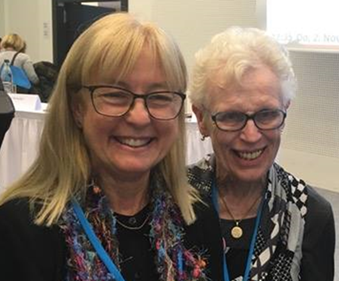Search
Research
Child protection involvement of children of mothers with intellectual disabilityChildren born to parents with intellectual disability (ID) have been shown as disproportionally represented in child protection services however with limited population-based research.
Research
Parents' experiences of children with a rare disease attending a mainstream school: AustraliaTo explore the perceptions of parents who had a child or adolescent (6-18 years) diagnosed with a rare disease who attended a mainstream school in Western Australia. Design and methods: A cross-sectional online survey was conducted with 41 parents of children with a rare disease.
Research
Kindy Moves: a protocol for establishing the feasibility of an activity-based intervention on goal attainment and motor capacity delivered within an interdisciplinary framework for preschool aged children with cerebral palsyPreschool aged children with cerebral palsy (CP) and like conditions are at risk of performing below their peers in key skill areas of school readiness. Kindy Moves was developed to support school readiness in preschool aged children with CP and like conditions that are dependent on physical assistance and equipment throughout the day. The primary aims are to determine the feasibility of motor-based interventions that are functional and goal directed, adequately dosed and embedded into a play environment with interdisciplinary support to optimise goal-driven outcomes.
Research
Oral parafunction and bruxism in Rett syndrome and associated factors: An observational studyTo explore patterns of parafunction, and bruxism, and its relationships with genotype and snoring in individuals with Rett syndrome.
Research
Randomised Controlled Trial of a Therapeutic Playgroup for Children with Developmental DelaysA single-blind randomised control trial investigated the effectiveness of the Learn, Engage and Play (LEaP) playgroup. Seventy-one children with developmental delay were randomly allocated to an 8-week LEaP playgroup or control group and followed up at 12 and 28 weeks.
Research
The Power of Playgroups: Key components of supported and therapeutic playgroups from the perspective of parentsPlaygroups are community-based programs for children and families aiming to improve child outcomes, enhance family and community networks and increase parenting capacity. Despite the prevalence of playgroups in Australian communities there is a lack of research clearly articulating the key components of playgroups, specifically from the perspective of parents attending these groups.
Research
The Neurological Hand Deformity Classification: Construct validity, test-retest, and inter-rater reliabilityThe Neurological Hand Deformity Classification (NHDC) is an impairment-based tool that classifies hand deformity into one of two ordinal scales: flexion or extension deformities. Classification is made from live observation or from recorded video footage. Differentiation between the levels is determined by wrist position and wrist and finger movement.

News & Events
The Kids researchers who helped identify rare disorder now poised to help the hunt for treatmentTwo The Kids Research Institute Australia researchers recognised for their role in building a global database for CDKL5 deficiency disorder are now helping to set the scene for clinical trials of much-needed potential treatments.
Research
Dental procedures in children with or without intellectual disability and autism spectrum disorder in a hospital settingThis population-based cohort study investigated dental procedures in the hospital setting in Western Australian children with or without intellectual disability (ID) and/or autism spectrum disorder (ASD) aged up to 18 years.
Research
Trends in prenatal diagnosis of congenital anomalies in Western Australia between 1980 and 2020: A population-based studyAdvances in screening and diagnostics have changed the way in which we identify and diagnose congenital anomalies.
